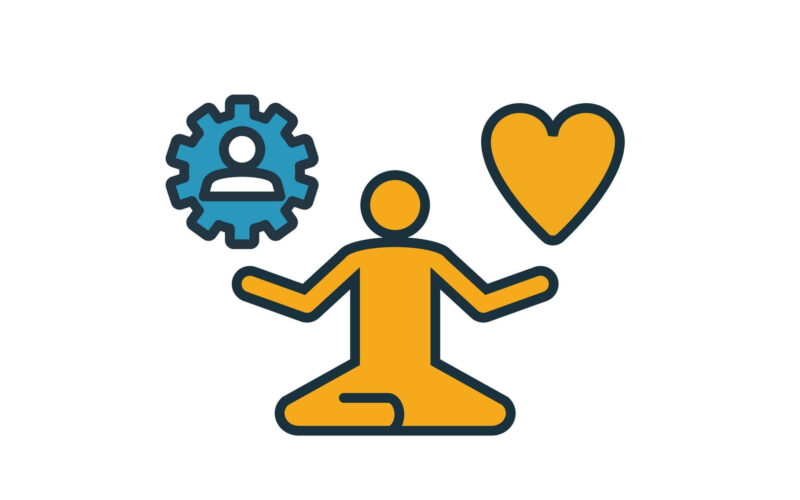Resilience: the term has been overused, not fully understood, and exploited to enhance numerous glossy marketing and industry wellbeing initiatives during the pandemic. But what does ‘resilience’ actually mean to you? How do you develop resilience and, more importantly, ensure that you have enough of the stuff when it really matters, when that unexpected ‘black swan’ presents itself with an associated, incapacitating startle effect?
Naturally, we seem to gravitate to optimize our professional resilience. But shouldn’t we also focus on building our personal resilience by addressing key human factors and behaviors that we have personally identified need development?
We have an opportunity to enhance our operational performance and safety by firstly identifying those personal behaviors such as sleep, nutrition, physical activity, relationships and so on. An incremental gain of 1% in each of the identified behaviors soon adds up to a marked increase in overall effective operational performance.
But it can’t just be one way. Resilience development needs to be supported by the organizational ecosystems that we are part of. A pro-active, non-punitive, ‘just culture’ is required to promote a safe, psychological space that fosters and facilitates resilience development at the individual, team, and organizational level. A simple cost analysis exercise would provide organizations with significant long-term enhancements to safety and performance and, for the bean counters, long-term financial and productivity benefits.
Resilience development or ‘resilience engineering’ (the ability to build adaptive capacity to perform confidently and competently when faced with unforeseen or unexpected situations) isn’t a new philosophy, but one that needs particular attention within our profession; particularly as the socio-technical interfaces of our operation become increasingly more complex. The implementation of Competency Based Training and Assessment (CBTA) advocated by ICAO (PANS TRG Doc 8968) and EASA’s Evidenced Based Training (EBT) program recognizes that the traditional task-based training approach isn’t fit for purpose as we operate and interact with complex Generation 4 Aircraft, and beyond. We build resilience through exposure to scenarios that stretch the development of our professional competencies as defined by ICAO, and the associated behaviors.
The pandemic has brought about many changes forcing organizations to adapt their products and processes.
In Resilient Pilot’s case, it was the impetus for its creation, the goal being to maximize the use of virtual platforms and technology to foster a blended approach to resilience development through mentoring, coaching, and training. It’s become evident that virtual technology will play a significant role in ‘competency to tool’ training, whereby we use the technology to develop resilience through a competency-based, targeted approach utilizing lower fidelity and part-task, interactive, scenario-based training solutions. Why wait six months for the sim?
This is not just about the pandemic. This is about how we tackle ‘stuff’ in general. The pandemic has simply brought sharp focus to our growing recognition of the need for resilience.
Self-analysis and evaluation will become increasingly important over the next few years to effectively compliment CBTA and instructor assessment. A key role of the CBTi will be to facilitate self-evaluation, already practiced as a 10th ICAO competency for Air Traffic Management and Controllers, and Aircraft Maintenance Engineers.
Taking ownership of one’s personal and professional resilience will ensure we emerge from the pandemic robust and operationally ready for new challenges that we may never have encountered before.
The minimum training required to re-qualify a pilot to the regulatory standard may not be sufficient following either a break in operational status, the loss of qualification due to the COVID-19 crisis, or a prolonged period away from the operational environment, such as maternity leave. Operators and organizations must be prepared to provide training and development above the minimum required by the regulatory authority if they are serious in their objectives to provide proactive resilience development and training.
Continuous performance-based resilience training and development will be required to ensure pilots enter, re-enter, or continue within the operational environment qualified, proficient, and, most importantly, Confident and Competent.
This high-level definition of resilience has been refined into two key elements by the Pilot Training Task Force (PTTF) of IATA: “flight crew resilience can be substantiated by raising the level of competence and by achieving the appropriate level of confidence (trust)”
But how does this all link to mental health and wellbeing?
It’s equally as important to build our personal resilience to ensure that we always protect and develop our own wellbeing. Here, self-awareness is key.
We are in a constant state of flux, responding dynamically to changes that are sometimes out of our control. Being able to self-evaluate and assess how we are within our own personal wellbeing construct will allow us to develop effective strategies to build our personal resilience.
Providing a framework of wellbeing and resilience behaviors, provides us with the tools to self-identify those behaviors that may require some attention, building resilience through incremental gains and adding up to a marked increase in performance. By addressing our personal resilience first, we can enhance our operational performance and, thus, safety.
Next time you feel like you haven’t performed quite as effectively as you thought, perhaps ask ‘why’ and investigate a little deeper into your personal human factors to figure out what those root causes may be for next time.
How resilient are you?
Visit resilientpilot.com to learn more about how you can develop your personal resilience through its Resilience Development Programme. Whether you’re operational right now, or not, we owe it to ourselves to take care of our wellbeing and developing our resilience will go a long way towards achieving that.

